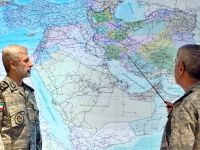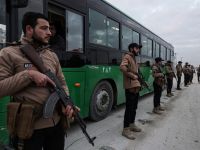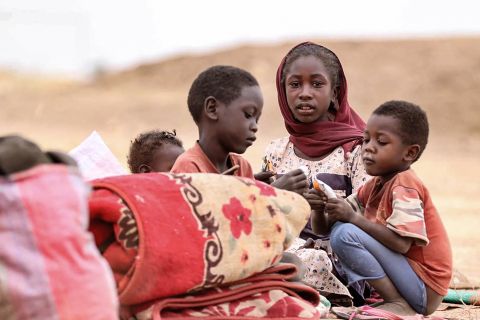The Middle East's largest IT fair opened in the Gulf emirate of Dubai on Sunday October 14 with officials dismissing fears of a loss in consumer confidence in the region following last month's US terror attacks. "It is business as usual," insisted Sheikha Lubna Al-Qassimi, head of an e-government committee in the Gulf emirate of Dubai.
"There are thousands pre-registered to attend GITEX Dubai 2001 and I am confident the exhibition will be one of the most successful," she told AFP. Organizers said 40,000 people had pre-registered on-line alone for the October 14-18 exhibition, a showcase for more than 600 exhibitors from around 1,500 Information Technology-related companies and 35 countries.
"Despite the current crisis, the enthusiastic support and high profile participation from major US and European companies, has given an added boost to the exhibition," said organizer Ibrahim Al-Hashemi.
The deadly terror attacks in the United States dealt a staggering blow to an already fragile world economy. Consumer sentiment was shaken, investment shriveled and key sectors such as civil aviation were devastated. But an official from Dubai Internet City, dubbed the world's first free trade zone for e-business, said it was too early to judge what the long-term effects would be for the Middle East.
"Dubai is a consumer market. That is not going to change in the short-or medium-term. The market is wide open and expanding. It is too early to comment on long-term effects. The only difference now is that there are security guards on the gate here. The commercial reality is that life goes on and the Middle East is a good market. It really is business as usual," he said. Some suppliers, however, said they had had concerns before flying into the United Arab Emirates (UAE).
"Our team was very apprehensive about flying into the region. We all knew Dubai as a Westernized and safe place, but it was traveling that unnerved people," said Mohan, an executive with a Canada-based telephone software company.
"Any worries about business have come from the overseas suppliers. The consumers are in place and are used to the region and the tension," he said. The regional director of Marconi Middle East, John Marshall, spoke of a "misapprehension of the reality on the ground."
"As a foreign company, there have been effects neither in our day-to-day work nor projects and we haven't seen any particular change in attitudes, although everybody's watching," he told AFP.
"The Middle East is still a great market that is still rolling out big projects," Marshall said, adding that it was a "region that has always been cautious with its money." Recent world events, however, have prompted several mainly European and US companies to stop executive travel outside Dubai unless on urgent business, and many have drawn up contingency plans for possible evacuation.
Amid heightened security, Emirati Finance Minister Sheikh Hamdan Bin Rashid Al-Maktoum opened GITEX 2001, accompanied by Dubai's Crown Prince Sheikh Mohammad bin Rashid Al-Maktoum, the pioneer of Dubai's e-crusade.
The UAE enjoys the best Internet penetration rate in the Arab world with an estimated 660,000 people, or 24.4 percent of the population, logging on. Dubai, one of the seven members of the UAE, has launched itself as the region's e-capital in an attempt to build a modern economy based on trade and tourism in the face of the impending exhaustion of its oil reserves. It is set to launch a fully integrated system of "e-government" this month. — (AFP, Dubai)
by Luke Phillips
© Agence France Presse 2001
© 2001 Mena Report (www.menareport.com)








